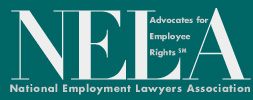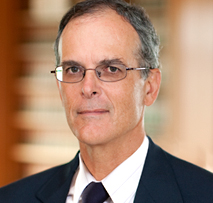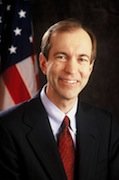January 12, 2018
Submitted Electronically to rule-comments@sec.gov
The Honorable Jay Clayton
U.S. Securities and Exchange Commission
100 F Street NE
Washington, DC 20549-1090
Re: Public Comments from Retail Investors and Other Interested Parties on Standards of Conduct for Investment Advisers and Broker-Dealers
Dear Chair Clayton:
We are writing today to urge the SEC to consider the issue of misleading titles and advertising, as a part of its deliberations regarding when and where fiduciary duty should apply. Read more
FINANCIAL SERVICES INDUSTRY TITLES
BACKGROUND
CONSUMER CONFUSION ABOUNDS
It is no secret that, over the years, the brokerage industry has morphed away from the use of the traditional “stockbroker” or “registered representative” titles and toward those titles that emphasize that an advisory relationship exists, such as “financial advisor” or “wealth manager.” Hence, it is not surprising that investors are confused about the nature of the services offered by their financial professionals. In survey after survey, consumers have indicated that they do not understand the key distinctions between the duties, services, and compensation models of investment advisers and broker-dealers. Consumers attribute their confusion in large part to the brokers’ use of titles such as “financial advisor” and “financial consultant.” Read more
June 9, 2017
The Committee for the Fiduciary Standard Applauds DOL Fiduciary Rule Benefits for Retirement Investors
Retirement Plans & Savers Will Benefit From Fiduciary Rule’s Impartial Conduct Provisions Effective June 9, 2017
The Committee for the Fiduciary Standard applaud the Department of Labor Fiduciary Rule’s provisions that become effective today. The first elements of the rule to take effect are the Impartial Conduct provisions. Read more.
April 16, 2017
Steering Group of the Committee for the Fiduciary Standard submitted comment letter to DOL supporting current Fiduciary Rule
“We strongly support Department of Labor’s (DOL’s) Conflict of Interest – Fiduciary Rule and urge you to implement the current Fiduciary Rule without revising, weakening or further delay to the Rule’s applicability dates. There is no reasonable argument for any delay and any delay would be arbitrary and capricious. In addition, any delay would be unlikely to withstand legal scrutiny.”
Read the entire comment letter here.
March 2, 2017
Proposal to Delay DOL Fiduciary Rule Would Continue Harmful Status Quo To Americans Sacrificing to Save for Retirement
Delay Would Transfer Billions From Retirement Accounts Into Wall Street’s Pockets
NY, NY – March 2, 2017 – The Trump Administration’s rush to delay the investor-friendly DOL Fiduciary Rule will result in harm to America’s retirement investors. The Fiduciary Rule, finalized last year, eliminates conflicts of interest that currently cost investors $45 Million every day, $1.4 Billion a month and $17 Billion a year in excess costs of investments recommended by non-fiduciaries. Read more.
January 26, 2017
STATEMENT To CONGRESS
THE TRUTH About DOL’s Fiduciary Rule:
More Advice & Lower Costs In The Best Interest of Investors
Larger Retirement Nest Eggs to Put To Work in the American Economy
Congress Should Encourage, Not Obstruct, Not Delay, And Not Kill
DOL Fiduciary Rule
It’s Time for Congress to acknowledge the truth about the DOL Fiduciary Rule: The Department of Labor’s Fiduciary Rule – long overdue and already effective – goes further to eliminate conflicts of interest and provide enormous benefits to retirement investors than any regulation or legislation since ERISA or the Investment Advisers Act of 1940. It will benefit all investors, no matter their level of wealth, size of account, or whether the advice they get is on retirement or non-retirement holdings. And, it will benefit the American economy.
Three recent court rulings underscore the fact that it is in the public interest that the DOL Fiduciary Rule goes forward without delay. U.S. District Judge Daniel Crabtree opined: “Any injunction thus will produce a public harm that outweighs any harm that plaintiff may sustain from the rule change.”
In fact, DOL’s Fiduciary Rule will also benefit the financial services industry, as many firms already acknowledge. Many financial services firms have already put in place the fiduciary processes and compliance needed to work within the Fiduciary Rule. This benefits both firms and clients over the long term.
Firms with fiduciary processes in place can more effectively gather assets to advise or manage, serving in the investor’s best interest, and thereby earning a reasonable fee – on more assets. This also leads to a more stable client base and revenue stream.
THE TRUTH About DOL’s Fiduciary Rule: There Will Be More Advice: Objective, Genuine Advice In The Best Interest of Investors, At a Reasonable Cost.
The Department of Labor crafted a Rule that continues to allow commission-based sales compensation for firms that desire that, as long as recommendations or advice are in the best interest of the retirement investor, thereby striking a careful balance that should be palatable to all parties. Guided by more than six years of research, proposal and re-proposal, study and consideration of more than 300,000 comments, hearings, written testimony, hundreds of meetings with stakeholders and further study, the Fiduciary rule is strong and fair.
The Department of Labor has achieved a remarkable balance in its Fiduciary Rule, increasing investor protections while imposing a reasonable level of regulatory oversight on financial advice providers.
No delay, or any other obstruction is necessary.
June 21, 2016
DOL’s Principles-based Approach is Right for Fiduciary Regulation
New York – June 21, 2016 – In the debate over the Department of Labor Fiduciary Rule many commentators who object to the rule are really objecting to its Principles-based approach versus the traditional securities industry Rules-based regulation. Read more.
June 6, 2016
Committee Steering Group Member, Sheryl Garrett Helped Spread the Word About Finding Fiduciary Advice in This Weekend’s Wall Street Journal
Following the news of some financial industry groups and businesses filing suit against the DOL over its new rule, Moneybeat writer Jason Zweig, provides a helpful guide for finding fiduciary advice. Among the useful tips, Zweig writes, “If the adviser’s questions center on how much money you have to invest, it’s a red flag, says Sheryl Garrett, founder of the Garrett Planning Network of Eureka Springs, Ark.” Read the full article here.
June 3, 2016
Special Interests Lobby Courts in ‘Best Interest’ – of Banks, Brokers and Insurers, Not Retirement Investors
Instead of fiduciary principles that place investor’s best interests first, special interests lobby Courts to keep their own interests ahead of America’s Retirement Savers. Read more.
April 8, 2016
The Committee for the Fiduciary Standard Names U.S. Department of Labor as Fiduciary of the Year—Award Recognizes Outstanding Fiduciary Advocacy and Commitment
The Committee for the Fiduciary Standard has named the U.S. Department of Labor as its 2016 Fiduciary of the Year. The Award is made in recognition of the outstanding fiduciary advocacy and commitment the Department of Labor has shown in its Fiduciary Rulemaking process. The Committee made the announcement today, at the fi360 INSIGHTS Conference, in San Diego. Read more.
April 6, 2016
The Committee for the Fiduciary Standard Applauds Progress as DOL Issues Final Rule for Retirement Advice—Looks Forward to Commenting on Final DOL Rule
The Committee for the Fiduciary Standard commends the release of the Department of Labor Fiduciary Rule, intended to eliminate conflicts of interest that harm retirement investors. The final rule was released despite efforts by large banks, broker-dealers and insurance companies, their lobbyists and a group of lawmakers to derail the rulemaking process. Read more.
December 10, 2015
STATEMENT To CONGRESS
THE TRUTH About DOL’s Fiduciary Rule:
There Will Be More Advice In The Best Interest of Investors
Congress Should Encourage, Not Obstruct, DOL Fiduciary Rulemaking
Congress must acknowledge the truth about the DOL Fiduciary Rules Proposal: The Department of Labor’s Fiduciary Rulemaking – long overdue – will go further to eliminate conflicts of interest and provide enormous benefits to retirement investors than any legislation since ERISA or the Investment Advisers Act of 1940. It will benefit all investors, no matter their level of wealth, size of account, or whether the advice they get is on retirement or non-retirement holdings. And, it will benefit the American economy.
In fact, DOL’s Fiduciary Rulemaking will also benefit the financial services industry that is trying mightily to kill the fiduciary rule.
THE TRUTH About DOL’s Fiduciary Rule: There Will Be More Advice: Objective, Genuine Advice In The Best Interest of Investors At a Reasonable Cost.
Click here to read the Committee’s full Statement to Congress.
October 16, 2015
Investors Voice Overwhelming Support for Fiduciary Relationship Between Financial Advisors and Clients – Survey
“Almost nine out of ten (87 percent) retirement investors stated that it is very (69
percent) or somewhat (18 percent) important to work with a financial advisor who is
legally required to act in their clients’ best interest.”
Investors – Protect Your Savings
What do retirement investors need to know about the Department of Labor Fiduciary rules? The new rules, which we believe will take effect in 2016, will require that the advice you are given be in your best interest, at a reasonable cost. Right now that’s sometimes the case, but definitely not always. Here’s what you need to know:
White Board Explainer: Your Retirement Protections
Investors – See How Commissions to Insurance and Broker Reps Affect What They Recommend to You
Prof. Mercer Bullard shows how broker-dealers’ and insurance companies’ commission structures can taint their reps’ recommendations: The “ratcheted payout grid” makes it much more lucrative — to the rep — to recommend one investment over another. In this example, an investor has $20,000 to invest. The difference in the rep” pay can be $29,000. How is this possible? The ratcheted payout grid. It happens more often than you imagine. See pages 15-16, for Prof. Bullard’s analysis of what happens to your money when dealing with a non-fiduciary rep.
How Can You Tell If You Are Working With A Fiduciary?
If you want to make sure the advice you get now is in your best interest, click here to print out the Fiduciary Oath. Bring it to your current financial or insurance rep, broker, adviser and have them sign it. If they will not, that tells you something very important — that what you are being advised to do may be in their interest instead of yours.
Support for Fiduciary Advice
Arthur Levitt – Former SEC Chair:
Move Forward on the Fiduciary Standard via DOL Fiduciary Rules
Sheryl Garrett:
Why We Need DOL’s Fiduciary Rule for “Best Interest” Retirement Advice
Kathleen McBride:
Those who already act in the best interests of their clients, as fiduciaries, support the DOL Fiduciary “Best Interest” Rulemaking
Barbara Roper of Consumer Federation of America:
Why We Need Strong Retirement Advice Protections
The Committee Urges DOL to Proceed With Fiduciary Rulemaking, Without Delay
The Committee’s latest comment letter – September 24, 2015
Sheryl Garrett’s latest comment letter – September 24, 2015
Prof. Ron Rhoades’ latest comment letter – September 23, 2015
September 4, 2015
How Do You Know You Can Trust Somebody With Your Money?
Norb Vonnegut | TEDxProvidence
Norb Vonnegut’s Ted Talk hits the ball out of the park for investors. He shows how to avoid financial predators, and what to look for as you select an adviser -a fiduciary – for advice in your best interest. Advice in your best interest at a reasonable cost, is what fiduciaries provide. Is that too much to ask? We don’t think so. www.norbvonnegut.com
August 28, 2015
Wall Street Opposes White House Crackdown on Financial Advisors
WASHINGTON — Ethyl Sprouse, 68, says she’s devastated by the loss of $400,000 from her retirement account. She blames her stockbroker who invested in high-risk stocks despite her order to play it safe.
“I felt like not only had I been betrayed by my broker, I’d been betrayed by the system,” said Sprouse. “The system I thought was there to protect me.”
Under the current rule, brokers can sell any investment deemed “suitable,” but under that standard officials say retirees lose $17 billion a year thanks to hidden fees paid to stockbrokers on investments that make them, not the client, the most money.
“It’s the most important thing that we can do to help people saving for retirement,” said Secretary of Labor Tom Perez. “That adviser needs to put your best interest ahead of their self-interest.”
See the full story at cbsnews.com.
August 24, 2015
Investor’s Retirement Protections—Why Advice In Your Best Interest is
Essential to Your Ability to Retire
Retirement savings are entitled to protection under the law, but those rules don’t apply to every savings plan, or retirement investor – yet. With 401(k)s and IRAs, workers are more responsible than ever for making important investment decisions. That means investors are increasingly reliant on the advice they receive. Ideally, your adviser will have your best interest at heart – but that’s not always the case. While many firms and financial representatives place the investor’s best interests first, some firms and financial representatives recommend the investments that pay themselves the most, acting in their own self-interest, instead of the investor’s best interest. That harms investor’s nest eggs, cutting them by as much as 27% or even more.
DOL has proposed rules designed to eliminate those conflicts of interest, so that that all retirement investors can get advice in their best interest, giving them the best opportunity to achieve a secure retirement nest egg.
Department of Labor Hearings
Committee Members Ron Rhoades, Sheryl Garrett, and Kate McBride testified at DOL Hearings in Washington, DC, August 10-13, 2015. Their testimony can be seen in the videos below.
August 10, 2015, Ron Rhoades Testifies at DOL Hearings
August 11, 2015, Sheryl Garrett Testifies at DOL Hearings
August 12, 2015, Kate McBride Testifies at DOL Hearings
June 16, 2015
The Committee for the Fiduciary Standard Signs Letter to Congressional Committee on Education and Workforce, U.S. House of Representatives
As organizations that want to see protections for retirement savers strengthened, we write to express support for the Department of Labor’s proposed rule — now out for public comment — that would close loopholes and update the standards for retirement investment advice under the Employee Retirement Income Security Act (ERISA). Read the full letter.
June 5, 2015
Special Interests Lobby Proposes Rules in ‘Best Interest’ – of Banks, Brokers and Insurers, Not Retirement Investors: Instead of fiduciary principles that put investor’s best interests first, special interests lobby to continue to place their own interests before America’s Retirement Savers’ interests
New York – June 5, 2015 – In an effort to derail a proposal from the Department of Labor (DOL) and the White House intended to eliminate conflicts of interest that cause devastating harm to retirement investors, special interests of banks, broker-dealers, and insurance companies are lobbying for alternative rules that would continue harming investors via high fees and inappropriate advice. Read more.
April 20, 2015
BloombergView: Imagine: Brokers Who Work for Investors
Barry Ritholz makes the case for the fiduciary standard for advice to retirement investors in a way that’s hard to argue against. http://bv.ms/1El5XOY
April 20, 2015
Fiduciary Faceoff: America’s Investment Industry at Critical Juncture
A very thoughtful blog from Paul Smith, the new CEO of the CFA Institute
“Our financial services industry is at a crossroads. We have reached that inevitable point where we have to decide which is more important: the interests of our clients or our own narrow self-interests.” http://cfa.is/1G1Mdef
April 14, 2015
DOL Releases Proposed Conflict of Interest Rule
See it here.
April 14, 2015
Save Our Retirement Coalition, 41 Major Groups Applaud Public Release of Dept. of Labor’s Proposal to Protect Americans’ Retirement Savings
In Significant Victory for Consumers, Long-Awaited Department of Labor Rule Issued for Public Comment. Read more.
April 14, 2015
The Committee for the Fiduciary Standard Applauds Progress
As DOL Process Moves Forward on Rules for Retirement Advice –
Looks Forward to Commenting on Proposed DOL Rules
The Committee for the Fiduciary Standard commends the release of a Department of Labor proposal intended to eliminate conflicts of interest that harm retirement investors. Read more.
March 16, 2015
I Am A Fiduciary And I Am Ready To Serve Retirement Investors
Are you a Fiduciary? Are you ready to serve retirement investors? If so, the Committee needs your help. We are gathering signatures to show that there are plenty of fiduciaries who serve retirement investors, including those with smaller or medium sized accounts.
Please sign this letter and help spread the word.
Thank you. http://goo.gl/forms/xeEybvlfWE
February 11, 2015
Committee Replies to Sen. Ron Johnson’s Letter to Secretary of Labor Thomas Perez
Senator Johnson,
In response to your February 5, 2015 letter to Secretary of Labor Thomas E. Perez: your letter has it backwards. Small investors and savers are the ones being victimized by current practices of the big Wall Street and insurance companies. And they will continue to be so if the Department of Labor doesn’t extend the embrace of the ERISA fiduciary standard for advice to and management of retirement accounts, retirement plans and retirement investors. Your statement that a rule requiring fiduciary advice “could adversely affect middle to low-income Americans’ access to investment advice,” is just not true.
A recent academic study, “The Impact of the Broker-Dealer Fiduciary Standard on Financial Advice,” shows that state law requiring brokers to act as fiduciaries has not reduced investor access to advice, but rather provided advice in the investor’s interest 1.
1. The Impact of the Broker-Dealer Fiduciary Standard on Financial Advice (Profs. Michael S. Finke, Texas Tech University & Thomas Patrick Langdon) http://papers.ssrn.com/sol3/papers.cfm?abstract_id=2019090Committee Letter to Sen. Ron Johnson 2/11/15
Sen. Ron Johnson Letter to Labor Sec. Thomas Perez
February 9, 2015
Committee Names Kathleen M. McBride Chairman
The Committee for the Fiduciary Standard today announced that it has named Kathleen M. McBride, AIFA®, as its new Chairman, succeeding Prof. Ron Rhoades, JD, CFP®.
Ms. McBride is a founder of the Committee, which was formed in 2009 to advocate that all investment and financial advice be rendered as fiduciary advice, in the best interest of the investor. She is an Accredited Investment Fiduciary AnalystTM, and founder of FiduciaryPath, LLC. She is also the editor of the fi360 Fiduciary Standard Survey.
June 6, 2012
Tell Congress “No” to an SRO
Congress is currently considering a bill that would authorize one or more self-regulatory organizations for oversight of investment advisers. The Committee believes that giving FINRA authority to regulate investment advisers would have a deleterious impact on the true fiduciary standard as followed by RIAs. Let your representative know that you oppose this bill and believe that the continuation of SEC oversight of RIAs is the best way to preserve the true fiduciary standard that protects investors as intended by the Investment Advisers Act of 1940
To learn how you can make your voice heard, read the attached letter from the Committee.
April 26, 2012
Committee honors Scott Simon as Fiduciary of the Year
The Committee presented its second annual Fiduciary of the Year award this week to honor an individual for contributions to advancing the vital role of the authentic fiduciary standard to investors, capital markets, and society. W. Scott Simon was chosen for his work writing the “Fiduciary Focus” column for Morningstar Advisor.
To learn more, see the press release announcing Mr. Simon’s award.
April 3, 2012
Committee’s Main Street Campaign lets investors know who puts their interests first
The Committee has launched a new campaign that encourages advisors to make a commitment to always act in the best interests of their clients and to put that commitment in writing. The Fiduciary Oath is a written pledge from the advisor to his or her clients that promises to always abide by the five core fiduciary principles. Every firm that provides a signed copy of the Fiduciary Oath to each of their clients is recognized on this site.
If you are an advisor who puts the interests of your clients first, visit the Fiduciary Oath page to learn more about the Oath and how your firm can be listed amongst those who have made the commitment.
March 9, 2012
Committee sponsors study on the real cost of fiduciary advice
A new study released this week looks into industry claims that a universal fiduciary standard of care would negatively impact the financial advice market. The study was authored by Professors Michael Finke of Texas Tech University and Thomas Langdon of Roger Williams University and was funded in part by the Committee for the Fiduciary Standard. Read the abstract below for a summary of their findings and download the full report from the Social Science Research Network.
Consumers who rely on the financial advice of experts are at an information disadvantage that may be exploited by advisers who are not required to make recommendations that are in the best interest of the customer. Registered representatives of broker-dealers are subject to a suitability standard under the Securities Exchange Act of 1934, while investment advisers are regulated as fiduciaries under the Investment Advisers Act of 1940. An early legislative version of the 2010 Dodd-Frank Act would have eliminated the broker-dealer exception from the definition of investment adviser under the Advisers Act. If enacted, this change would have subjected brokers to a common-law fiduciary standard (like investment advisers), but was postponed to examine the consequences of this policy change. It has been suggested that the imposition of a fiduciary standard on registered representatives would result in significant changes in how broker-dealers conduct business by limiting a representative’s ability to recommend commission investments, provide advice to middle-market clients, and offer a broad range of financial products. We take advantage of differences in state broker-dealer common law standards of care to test whether a relatively stricter fiduciary standard of care impacts the ability to provide services to consumers. We find that the number of registered representatives doing business within a state as a percentage of total households does not vary significantly among states with stricter fiduciary standards. A sample of advisers in states that have either a strict fiduciary standard or no fiduciary standard are asked whether they are constrained in their ability to recommend products or serve lower-wealth clients. We find no statistical differences between the two groups in the percentage of lower-income and high-wealth clients, the ability to provide a broad range of products including those that provide commission compensation, the ability to provide tailored advice, and the cost of compliance.
May 19, 2011
Committee: NAIFA “Hugely Misunderstands” Fiduciary Requirements of RIAs
Knut Rostad, Chairman of the Committee for the Fiduciary Standard, said, “Last week NAIFA issued a statement on its view of the differences between the suitability and the fiduciary standards. NAIFA President Terry Headley asserted that there is no evidence to support the claim that the fiduciary standard provides consumers superior protection compared to the suitability standard. In part, Headley argued that the fiduciary standard is actually weaker because it is ‘process-oriented, subjective and retrospective.’ NAIFA’s huge misunderstanding of fiduciary duties is quite startling.” read full response
May 3, 2011
Committee Replies to Republicans Call for More Study of the Fiduciary Standard
In a May 3 letter, the Committee for the Fiduciary Standard wrote Scott Garrett, Chairman, Subcommittee on Capital Markets & Government Sponsored Enterprises, that it’s time to move forward on the fiduciary standard. Garrett wants more analysis before enacting a fiduciary standard, Knut Rostad, Chairman for the Committee, said that research and consensus already exist.
“The pros and cons of applying the fiduciary standard… have been studied extensively and this research should be examined,” said Rostad. “Our hope and expectation is that this process will help avoid further delay in implementing meaningful reforms to better protect retail investors.”
Read the Committee’s full reply.
Analysis of Senator Tim Johnson’s Proposed Study of Broker, Adviser Duties
April 18, 2011
Committee Supports RIA-only SRO
The Committee for the Fiduciary Standard today strongly expressed its support for an RIA-only SRO, if Congress permits the SEC to choose an SRO for IAs. The Committee said in a statement:
“If Congress determines there will be an SRO for Investment Advisors, SEC registered investment advisers deserve a choice. The Self-Regulatory Organization for Independent Investment Advisors, (SROIIA) seeks to be an SRO imbued with an unwavering commitment to the authentic fiduciary standard. This is what investors expect; this is what they need.” read more
SROIIA Replies to Committee: Advisors Should Put Clients First
The Self-Regulatory Organization for Independent Investment Advisors, (SROIIA) looks to uphold an “unwavering commitment to an authentic fiduciary standard” and to always seek for investment advisers to put their clients first. SROIIA believes that the authentic fiduciary is what investors expect and what they deserve.press release
“SROIIA seeks to become synonymous with the bona-fide fiduciary standard and ensuring that clients’ best interests always come first,” says Timothy Collins, Co-CEO.
April 14, 2011
Diverse Groups Speak Out For DOL EBSA Rule to Modernize Reach of ERISA Fiduciary
A diverse group of organizations and groups who share a common interest in updating the definition of the ERISA fiduciary and who are generally supportive of the Department of Labor Employee Benefits Security Administration (DOL EBSA) proposed rule. Each group has submitted comment to EBSA.
Public hearing written testimony before DOL can be found here.
The groups are:

The Pension Rights Center
Norman Stein

Public Investors Arbitration Bar Association
Peter J. Mougey

National Employment Lawyers Association
Marc Manchiz

Fi360
Kristina Fausti
![]()
The Committee for the Fiduciary Standard
Knut A. Rostad
More information
April 12, 2011
Concerned Organizations Submit Letters to the Department of Labor
On April 12, 2011, Fi360, the National Employment Lawyer’s Association (NELA) and the Committee for the Fiduciary Standard recently submitted letters to the United States Department of Labor (DOL) following a March 18 meeting with the department’s Employee Benefits Security Administration (EBSA) staff and officials. The letters set out views regarding the fiduciary standard, generally, and then address several of the questions that either EBSA staff has raised, or have been raised buy commenters.
Letter from Fi360
Letter from NELA
Letter from the Committee for the Fiduciary Standard
March 2011
Fiduciary of the Year Award Named for Tamar Frankel
The Committee honors Prof. Frankel and calls for nominees who have advanced the ‘authentic fiduciary standard.’ Press release
View a video of Tamar Frankel discussing the evolution of fiduciary law over the past century. Prof. Frankel gave her comments at the Fiduciary Forum in 2010.
February 2011
The Fiduciary Standard: What Will Rulemaking Bring?
A distinguished panel of industry leaders and academics spar over the impact of the SEC’s Study and what rulemaking will mean to investors.
Click here to view the archived webcast.
Interview with keynote speaker:
Tom Bradley
President
TD Ameritrade Institutional

James A. Fanto
Professor
Brooklyn Law School
interview

Knut Rostad
Chairman
Committee for the Fiduciary Standard
interview
This special Feb. 10 webcast was presented by:The Center on Financial Services Law at New York Law School and The Committee for the Fiduciary Standard



